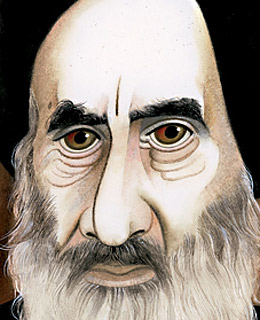
In contrast to Iraq's other would-be leaders, Grand Ayatullah Ali Husaini Sistani is not a politician and, mercifully, does not wish to be one. And yet since April 2003 the Iranian-born leader of Iraq's Shi'ite majority has been the only widely acknowledged moral voice in Iraq.
He rarely gives an opinion, but when he does, it is always on a groundbreaking issue of principle. It was the ayatullah, 74, for instance, who insisted that only a properly elected body could choose representatives to draft Iraq's permanent constitution, forcing the U.S.-led coalition government to yield to his wishes. Then the ayatullah demanded a speeded-up timetable for elections; the United Nations ultimately agreed to that as well. Before the elections he urged Iraqi citizens to vote and counseled restraint amid the barbarous provocations by so-called insurgents—and 8 million people turned out. Remarkably, the fledgling democratic process in Iraq exists because of two men: Ayatullah Sistani and George W. Bush.
The biggest challenge lies ahead for the ayatullah. A pluralist, democratic Iraq conflicts with Shi'ites' demands for political control in compensation for their past suffering. Iraq needs a figure who can block the sectarian impulse and protect the democratic revolution. Ayatullah Sistani is the only man who can do that. It remains to be seen whether he will.
Makiya founded the Iraq Memory Foundation, which documents human rights abuses committed under Saddam Hussein
From the Archive
Iraq's Shadow Ruler: When Ayatullah Sistani speaks, millions obey. Can the conscience of the nation make it safe for democracy?